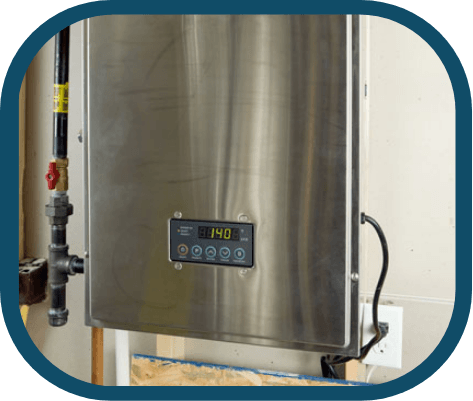Frequently Asked Questions
How does a tankless water heater differ from a traditional water heater?
A tankless water heater heats water on demand, eliminating the need for a storage tank. This results in energy savings and a continuous supply of hot water.
What are the benefits of installing a tankless water heater?
Installing a tankless water heater offers benefits such as energy efficiency, lower utility bills, space conservation, and reduced need for repairs.
How does a tankless water heater help save energy?
Tankless water heaters only heat water when needed, avoiding standby heat loss common in traditional water heaters. This results in lower energy consumption and reduced utility bills.
What factors should I consider before installing a tankless water heater?
Before installing a tankless water heater, consider factors such as your hot water usage patterns, available space, fuel type (gas or electric), and upfront installation costs.
Can a tankless water heater be used for the whole house?
Yes, tankless water heaters can supply hot water to the entire house, provided they are appropriately sized to meet the household’s hot water demands.
What maintenance does a tankless water heater require?
Tankless water heaters typically require periodic flushing to remove mineral buildup and maintain efficiency. It’s also essential to check for leaks and ensure proper ventilation.
Are tankless water heaters more expensive to install?
While tankless water heaters may have higher upfront costs than traditional water heaters, their energy efficiency and longer lifespan can result in cost savings over time.
What is the lifespan of a tankless water heater?
A well-maintained tankless water heater can last up to 20 years or more, compared to the average lifespan of 10-15 years for traditional water heaters.
Can I install a tankless water heater myself?
It is recommended to hire a professional plumber for the installation of a tankless water heater to ensure proper sizing, installation, and compliance with local building codes.
Do tankless water heaters require venting?
Yes, tankless water heaters require proper venting to remove exhaust gases safely. Venting requirements may vary based on the type and location of the unit.
Are tankless water heaters suitable for large households?
Tankless water heaters can be suitable for large households if appropriately sized and installed to meet the increased hot water demands. Multiple units may be required for larger homes.
Can I use a tankless water heater in areas with hard water?
Yes, tankless water heaters can be used in areas with hard water, but regular maintenance such as flushing and descaling may be necessary to prevent mineral buildup and maintain efficiency.
Do tankless water heaters provide instant hot water?
While tankless water heaters heat water on demand, there may be a slight delay in hot water delivery due to the time it takes for the unit to heat the water to the desired temperature.
Are tankless water heaters noisy?
Tankless water heaters are generally quieter than traditional water heaters since they do not have a constantly operating heating element. However, some noise may occur during operation, such as the sound of the burner igniting.
Do tankless water heaters require a specific fuel type?
Tankless water heaters are available in both gas and electric models, allowing homeowners to choose the fuel type that best suits their preferences and existing infrastructure.

